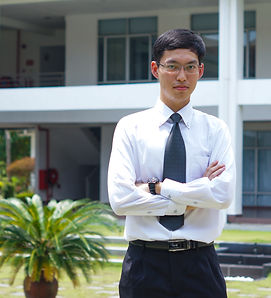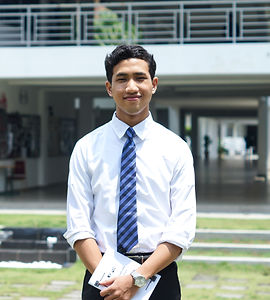
ECONOMICS
Privatisation of Water
(Academic Council)
Privatisation of water, an international issue which had started in Margaret Tatcher's era has long been a hotly-debated topic. Lately, more countries, particularly developing nations privatise their water supply as a result of World Bank and International Monetary Fund, IMF's latest obsession of making privatisation a vital criterion to give loans to those countries.
Water privatization – when private corporations buy or operate public water utilities – is often suggested as a solution to municipal budget problems and aging water systems. Unfortunately, this more often backfires, leaving communities with higher water tariffs, worse service, job losses, and more. Nonetheless, despite certain failures, there are some countries which are successful in water privatisation.
With water privatisation, does our future seem promising? Does water privatisation mean violation of basic human rights? How does water privatisation affect the society as a whole?

SOCIAL
The Fate of Atlantis
(MUN Council)
One of the most significant effects of climate change is hotter temperatures. This has led to icebergs melting and sea levels rising continuously. Not only do Antartic animals lose their home, so do people who live on small islands. Earlier this year, five islands which are part of the Solomon Islands have sunk.
Inhabitants of the island have lost their homes but who is to blame for causing this issue? Are nations working hard enough to reduce the harm of climate change? Do we have to resort to blaming another country for expanding too much economically thus causing more pollution? Where will the displaced population have to go to and which country should bear the responsibility of taking in the population? Should major contributors to global warming like the US and China take responsibility?
These are some of the issues that, the socials council intends to tackle. The socials council invites you to join us on a mission, in the shoes of policy makers, to discuss and come to a consensus on this issue. We look forward to hearing your opinions and thoughts as we learn more about climate change and its effect on nations' borders. The research packet provided covers information including treaties created to reduce climate change as well as organisations established. This will help in answering the questions above.



POLITICS
Gun Control
(MUN Council)
It was a late summer Tuesday and the atmosphere at the BATCC is unexceptionally mundane. In the radar room, air controller Danielle O’Brien nervously glanced at the ceiling clock while she handled the routine, on-time departure of American Flight 77. The time was 08:24:38. She had requested the pilots to ascend the plane’s cruising altitude yet to her dismay, she received no response.
The transmitter rang abruptly, disturbing her train of thoughts. O’Brien picked up the transmitter, only to be greeted by a chilling message, as air controllers across the nation witness four airlines disappearing from the radar screen. On 9th November 2001, a fateful turn of events has shaped the political discourse of the USA for the past decade, leaving a nation that struggle to strike a balance between security and freedom.
Welcome to the Politics Council of Kaigi! In this peculiar yet unique council, you will deputise as a U.S. Senate, persevering through an issue that has plagued the nation for 16 years. Around you are your allies and enemies scrutinising a bill that has been put forward by a libertarian, aiming at the deregulation of gun laws. Several lawmakers are arguing that the government’s security enhancement curtail individual freedom. Those who give up essential liberty to purchase a little temporary safety deserve neither, Benjamin Franklin said.

SCIENCE & IT
Autonomous Vehicles
(Academic Council)
An autonomous car is a vehicle that is capable of sensing its environment and navigating with little or no human input. However, as of today, such cars are still being developed and the automated vehicles that are currently on the road are not fully autonomous. The issue raised now is security, safety and the accountability of these cars. Do autonomous cars have a place in our future?
Waymo. Tesla. More and more new companies are pursuing the ultimate goal of dominating the world of self-driving cars. Utilising cutting-edge laser and radar systems as well as complex computer algorithms in order to evaluate potential risks and hazards, new concept cars are exceeding our imagination and redefining what it means to be a driverless car. Perhaps the day when humans no longer need to drive themselves around is nigh.
However, this technology is far from perfect in spite of the fact that we have a rising number of self-driving cars invading the global market. The Science and Technology Council invites you to join us as we explore the ever-expanding autonomous vehicle market, discuss and debate controversial issues about this emerging and promising industry, and answer the questions: Are we really ready for a driver-less age? Or is it really just an unachievable and preposterous dream that man conjured about the future?



